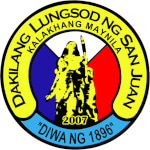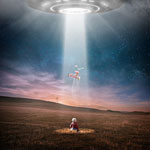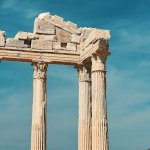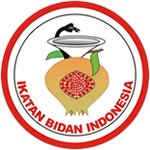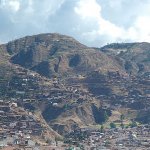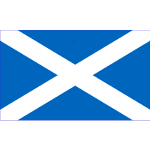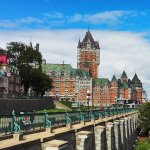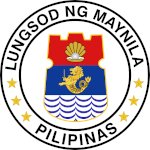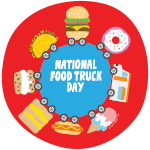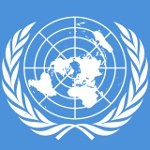Holidays Calendar for June 24, 2016
Battle of Carabobo Day is a Venezuelan public holiday celebrated on June 24. It honors both the key battle in the Venezuelan War of Independence and the nativity of Saint John the Baptist. It is also referred to as Army Day.
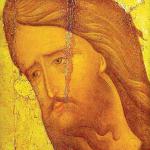 Religious Holidays →
Andorra,
Canada,
Estonia,
Latvia,
Lithuania,
Spain
Religious Holidays →
Andorra,
Canada,
Estonia,
Latvia,
Lithuania,
Spain
Nativity of St John the Baptist
The Nativity of St John the Baptist is a Christian feast day that celebrates the birth of a major religious figure in Christianity, John the Baptist. It is celebrated on June 24.
The feast of Saint John (Pista ng San Juan), also known as the Wattah-Wattah Festival or Basaan Festival, is an annual celebration of the nativity of Saint John the Baptist in the Philippine city of San Juan.
World UFO Day is an annual awareness day that celebrates the alleged existence of unidentified flying objects and extraterrestrial life. The observance has two possible dates: June 24 to commemorate the Kenneth Arnold UFO sighting and July 2 to commemorate the Roswell UFO incident. Both of these UFO sightings occurred in 1947.
 International Observances →
USA,
Canada,
United Kingdom,
Australia,
New Zealand
International Observances →
USA,
Canada,
United Kingdom,
Australia,
New Zealand
Take Your Dog to Work Day
Take Your Dog to Work Day is an annual event typically held on a Friday following Father's Day (the third Sunday in June). It was created by Pet Sitters International (PSI), the largest educational for professional pet sitters in the world.
History is one of the most important sciences because without knowing our past we cannot predict and shape our future. World History Day is celebrated annually on June 24 to recognize the importance of history in our lives.
World Pneumothorax Day is an annual awareness day observed by some organizations on June 24 and by others on June 30. The day was created to educate the public about the potentially life-threatening medical condition colloquially referred to as a “collapsed lung” or “punctured lung”.
Rosé is probably one of the world’s most misunderstood and underrated wine styles. A lot of people believe rosé to be an inexpensive summertime wine that doesn’t have much to offer. However, in reality rosé is just as versatile as red or white wine. International Rosé Day is celebrated annually on the fourth Friday of June to educate the general public about this amazing style of wine and dispel common misconceptions about it.
National Midwife Day (Hari Bidan Nasional) is celebrated in Indonesia annually on June 24. It was established to highlight the contribution of midwifes to healthcare and foster unity and sisterhood among Indonesian midwives.
Arbor Day in Nicaragua is celebrated on the last Friday in June. It was officially established by the government in 1971 and has been observed every year ever since. However, the celebration dates back to 1929, when June 1 of that year was set aside as the day to honor Nicaraguan forests.
Inti Raymi is a traditional winter solstice celebration in Peru. It was originally held on the actual day of the winter solstice in the Southern Hemisphere (June 21), but the celebration was eventually moved to the feast day of Saint John the Baptist, June 24.
On June 24, Brazilians celebrate Caboclo Day (Dia do Caboclo). This is an annual observance that honors one of the country’s ethnic groups. This date is an official public holiday in the state of Amazonas.
Bannockburn Day is a Scottish observance held on June 24 every year. It commemorates a significant Scottish victory in the First War of Scottish Independence that is considered an important landmark in Scottish history.
On June 24, the Canadian province of Quebec celebrates its National Day. It is an official public holiday in Quebec, and its celebration is sometimes even greater in scale than that of Canada Day, a federal holiday and the national day of the entire country.
Manila Day is an official holiday in the National Capital Region of the Philippines. It is celebrated on June 24 to commemorate the arrival of the Spanish conquistador Miguel López de Legazpi and the founding of Spanish Manila in 1571.
June 24 is National Pralines Day. Praline, perhaps, is the most complex term in confectionery, because it may refer to anything.
The last Friday of June is a perfect day to support your favorite local food truck by purchasing something delicious from it because it is National Food Truck Day. This amazing holiday has been celebrated annually since 2016.
 Folk Festivals →
Latvia,
Lithuania,
Denmark,
Norway,
Finland,
Sweden,
Estonia,
United Kingdom,
Ireland,
France,
Spain,
Italy,
Hungary,
Brazil,
Poland,
Portugal,
Puerto Rico,
Austria,
Faroe Islands,
Croatia,
Germany,
Romania,
USA
Folk Festivals →
Latvia,
Lithuania,
Denmark,
Norway,
Finland,
Sweden,
Estonia,
United Kingdom,
Ireland,
France,
Spain,
Italy,
Hungary,
Brazil,
Poland,
Portugal,
Puerto Rico,
Austria,
Faroe Islands,
Croatia,
Germany,
Romania,
USA
St John's Day (Midsummer)
St John's Day is the feast day of Saint John the Baptist observed by the Catholics and some Protestants in many countries on June 24. This religious holiday is strongly connected with the pre-Christian Midsummer celebrations.
The International Day for Women in Diplomacy is a United Nations observance held annually on June 24. It was created to highlight the contributions of women to diplomacy, which have historically been overlooked.
National Cream Tea Day, also referred to as simply Cream Tea Day, is celebrated in the United Kingdom on the last Friday of June. It was created to honor a beloved English afternoon tea tradition and encourage people to donate to charity.
Festivals for June 24, 2016
- Festival dei Due Mondi in Spoleto, Italy
- Hurricane Festival in Scheessel, Germany
- JazzBaltica in Niendorf, Germany
- Leopolis Jazz in Lviv, Ukraine
- Old Songs Folk Festival in Altamont, USA
- Vincy Mas in Kingstown, Saint Vincent and the Grenadines
- San Diego International Fringe Festival in San Diego, USA
- Moscow International Film Festival in Moscow, Russia
- International Indian Film Academy Awards in Madrid, Spain
- JazzAscona (Ascona Jazz Festival) in Ascona, Switzerland
- World Dog Show in Moscow, Russia
- VidCon Anaheim in Anaheim, USA
- Filmfest München in Munich, Germany
- Los Angeles Culture Festival and Hollywood Carnival Parade in Los Angeles, USA
- Glastonbury Festival in Pilton, United Kingdom
This Day in History
- 2022 In a landmark decision in Dobbs v. Jackson Women's Health Organization, the U.S. Supreme Court held that the Constitution of the United States does not confer a right to abortion.
- 2021 Died: Benigno Aquino III, Filipino politician who served as the 15th President of the Philippines from 2010 to 2016. He was a fourth-generation politician as part of the Aquino family.
- 2013 Died: Emilio Colombo, Italian politician. A member of the Christian Democracy party, he served as Prime Minister of Italy from August 1970 to February 1972.
- 2013 Former Italian Prime Minister Silvio Berlusconi was found guilty of power abuse and having sex with an underage prostitute. He was sentenced to 7 years in prison.
- 2012 Died: Lonesome George, the last known individual of the Pinta Island tortoise. In his last years, he was known as the rarest creature in the world.
- 2010 Julia Gillard assumed office as the first female Prime Minister of Australia.
- 1994 Born: Erin Moriarty, American actress best known for her role as Annie January / Starlight in the American satirical superhero television series The Boys.
- 1993 Born: Beanie Feldstein, American actress. She first gained recognition for her starring roles in Neighbors 2: Sorority Rising, Lady Bird, and Booksmart.
- 1987 Born: Lionel Messi, Argentine professional footballer who, as of 2025, plays as a forward for and captains both Major League Soccer club Inter Miami and the Argentina national team.
- 1987 Died: Jackie Gleason, American actor, comedian, writer, and composer also known as "The Great One". He was known for his brash visual and verbal comedy.
- 1980 Born: Minka Kelly, American actress who rose to fame for her role as Lyla Garrity on Friday Night Lights. Her other television credits include Charlie's Angels, Almost Human, and Titans.
- 1979 Born: Mindy Kaling, American actress, comedian, screenwriter, and producer known for her extensive work on television. She first gained recognition starring as Kelly Kapoor in The Office.
- 1967 Born: Richard Z. Kruspe, German guitarist, best known as a co-founding member and guitarist of the German band Rammstein and the founder of the alternative metal band Emigrate.
- 1953 Born: William E. Moerner, American chemist and physicist, Nobel Prize laureate for the discovery of a method in which fluorescence in individual molecules is steered by light.
- 1950 Born: Nancy Allen, American actress and cancer activist. She gained world recognition in the 1980s for her roles in Strange Invaders, The Philadelphia Experiment, Poltergeist, Limit Up, and the RoboCop trilogy.
- 1948 The Soviet Union started the Berlin blockade, making overland travel between West Germany and West Berlin impossible.
- 1947 Born: Peter Weller, American actor and director, best known for starring the title character in the blockbuster hits RoboCop and RoboCop 2.
- 1935 Died: Carlos Gardel, Argentinian singer-songwriter and actor, the most prominent figure in the history of tango. He died in an airplane crash on the top of his career, becoming an archetypal tragic hero mourned throughout Latin America.
- 1932 The People's Party of Thailand (then Siam) instigated a bloodless revolution. It ended the absolute power of King Prajadhipok and changed the political system of the country to constitutional monarchy.
- 1927 Born: Martin Lewis Perl, American physicist and engineer, Nobel Prize in Physics laureate for the discovery of the tau lepton, an elementary particle similar to the electron.
- 1922 Died: Walther Rathenau, German businessman and politician, who served as Foreign Minister of Germany during the Weimar Republic. He was assassinated.
- 1916 Canadian-American actress Mary Pickford became the first female film star to sign a million dollar contract. She was also granted full authority over production of the films in which she starred.
- 1909 Died: Sarah Orne Jewett, American author and poet, best remembered for her local color works set along or near the southern seacoast of Maine.
- 1908 Died: Grover Cleveland, American politician, the 22nd and 24th President of the United States, one of the two US presidents to serve non-consecutive presidential terms.
- 1893 Born: Roy O. Disney, American businessman who co-founded Walt Disney Productions together with his younger brother Walt, now known as The Walt Disney Company.
- 1883 Born: Victor Francis Hess, Austrian-American physicist and academic, Nobel Prize laureate for the discovery of cosmic rays.
- 1842 Born: Ambrose Bierce, American journalist and author, best known for compiling a satirical lexicon dictionary, The Devil's Dictionary.
- 1835 Born: Johannes Wislicenus, German chemist, best known for his work in early stereochemistry. He was the first to discover substances with different physical properties but with an identical chemical structure.
- 1821 The Battle of Carabobo, the decisive battle in the war of independence of Venezuela from Spain, was won by Venezuelan General Simón Bolívar.
- 1812 Napoleon's Grande Armée crossed the Neman River, beginning the invasion of Russia.
- 1795 Died: William Smellie, Scottish master printer, naturalist and encyclopedist, known as the first editor of the the Encyclopædia Britannica.
- 1795 Born: Ernst Heinrich Weber, German physician and psychologist who is considered one of the founders of experimental psychology. He was a professor at the University of Leipzig for the entirety of his academic career.
- 1793 France adopted its first Republican Constitution.
- 1637 Died: Nicolas-Claude Fabri de Peiresc, French astronomer. He maintained a wide correspondence with scientists and was a successful organizer of scientific inquiry.
- 1571 Spanish navigator Miguel Lopez de Legazpi founded Manila, the capital of the Philippines.
- 1519 Died: Lucrezia Borgia, Italian noblewoman who was the illegitimate daughter of Pope Alexander VI. She reigned as the governor of Spoleto, a position usually held by cardinals, in her own right.
- 1398 Died: Hongwu Emperor, the founding emperor of the Ming dynasty of China that ruled from 1368 to 1644 following the collapse of the Mongol-led Yuan dynasty.

